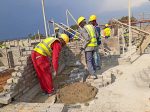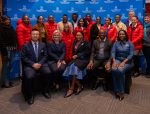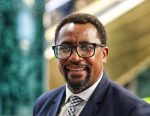The City of Windhoek has approved building plans valued at more than N$9.9 billion between 2020 and 2025, marking a significant milestone in the capital’s urban development and economic expansion. The announcement was made by Windhoek Mayor, Her Worship Ndeshihafela Larandja, in a reflective address published in the July 2025 issue of the municipal newsletter, The Aloe.
This substantial investment in construction underscores the city’s commitment to infrastructure development, urban planning, and responsive governance amid a rapidly growing population and increasing demand for housing and commercial spaces.
In her column, Mayor Larandja highlighted the approval of these building plans as one of the key achievements of the current council term, which began in 2020. She emphasized that the figure reflects not only economic activity but also the city’s strategic focus on sustainable development and improved living standards.
“Over the past five years, we have made considerable progress,” the Mayor stated. “The approval of building plans worth over N$9.9 billion is a testament to our efforts to foster an environment conducive to investment, growth, and urban renewal.”
The approval process for building plans is a critical function of municipal governance, ensuring that all developments comply with zoning laws, building regulations, and environmental standards. The significant value of approved plans indicates robust private and public sector confidence in Windhoek’s future, as well as the city’s capacity to manage large-scale projects.
This development is expected to have a multiplier effect on the local economy, creating jobs in construction, engineering, architecture, and related sectors. It also aligns with broader national goals to reduce housing shortages and stimulate economic recovery post-pandemic.
Mayor Larandja also used the opportunity to reaffirm the council’s commitment to transparency and accountability. “It is important for every public servant to reflect on their time in office,” she wrote. “We are entrusted with the responsibility to serve, and with that trust comes the duty to be transparent, accountable, and honest about the work we have undertaken on your behalf.”
The Mayor acknowledged that the journey had not been without challenges, including “difficult decisions, delays, and at times, disappointments.” However, she stressed that open communication about both successes and setbacks strengthens civic trust and engagement.
Beyond the building plans, the council’s term saw several other notable accomplishments, including the electrification of more than 4,000 homes, the construction of a N$235 million electricity substation, and the installation of nearly 200 communal toilets and over 220 water points in informal settlements. These efforts form part of a broader strategy to enhance service delivery and reduce inequality.
The N$9.9 billion in approved building plans is also indicative of Windhoek’s growing role as Namibia’s economic hub. The city has seen increased interest from developers in residential, commercial, and mixed-use projects, contributing to urban densification and modernization.
As the current council term enters its final months, the Mayor expressed gratitude to residents, community groups, organizations, and city staff who contributed to these achievements. “None of this was done in isolation,” she noted. “These initiatives reflect our commitment to a responsive, inclusive, and people-driven administration.”
Looking ahead, the City of Windhoek remains focused on sustainable urban management, regulatory compliance, and community engagement. The approval of high-value building plans sets a strong foundation for continued growth, though the Mayor also called for patience and cooperation as the city navigates complex issues such as relocations and infrastructure upgrades.
“As we step into the final four months of this Council’s term, let us remain focused, united, and hopeful,” Mayor Larandja concluded. “Whether in building infrastructure or fostering community partnerships, we are collectively shaping a city rooted in justice, dignity, and opportunity.”
The full details of the approved projects and their distribution across the city’s constituencies are expected to be released in the coming months as part of the council’s final term report.










